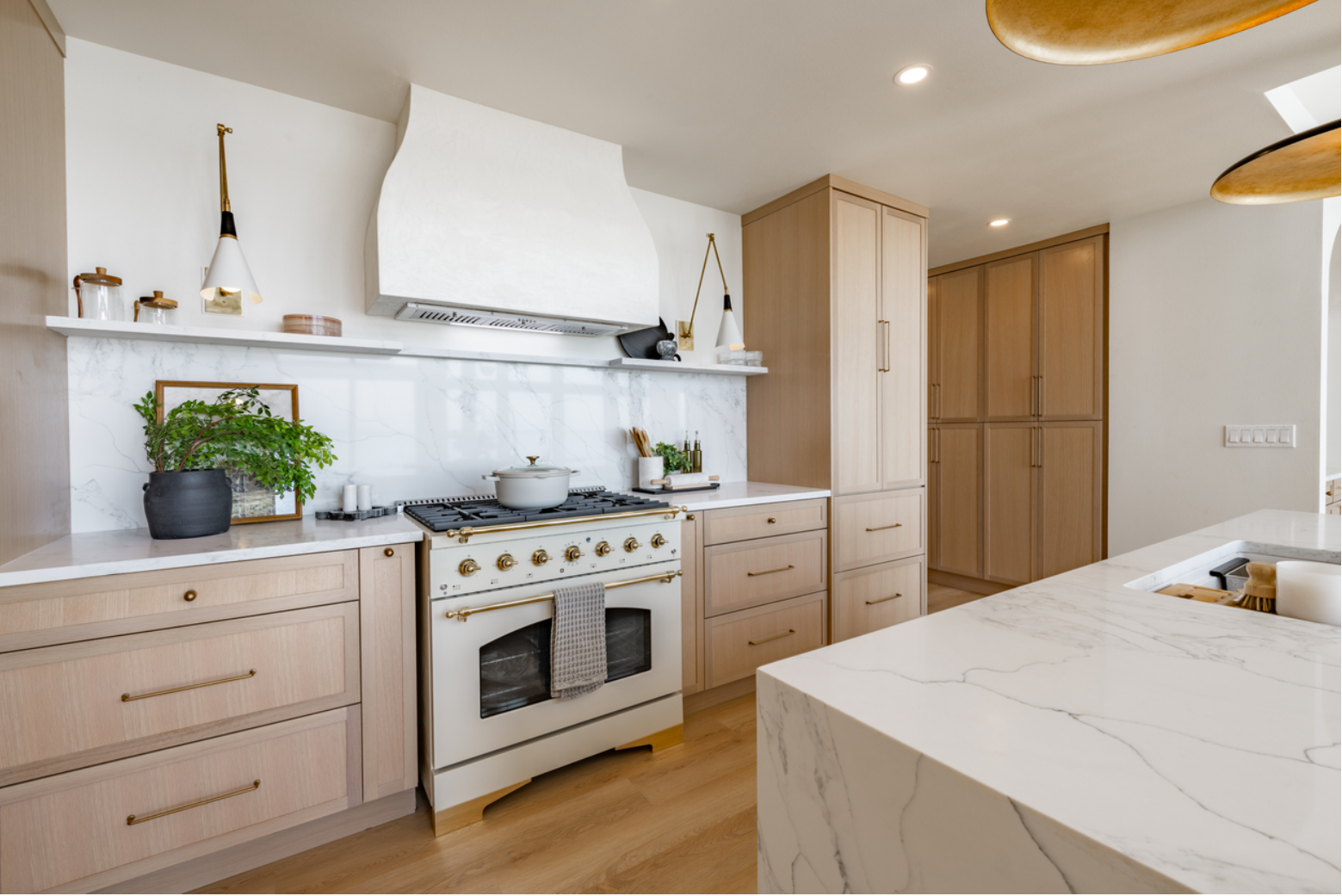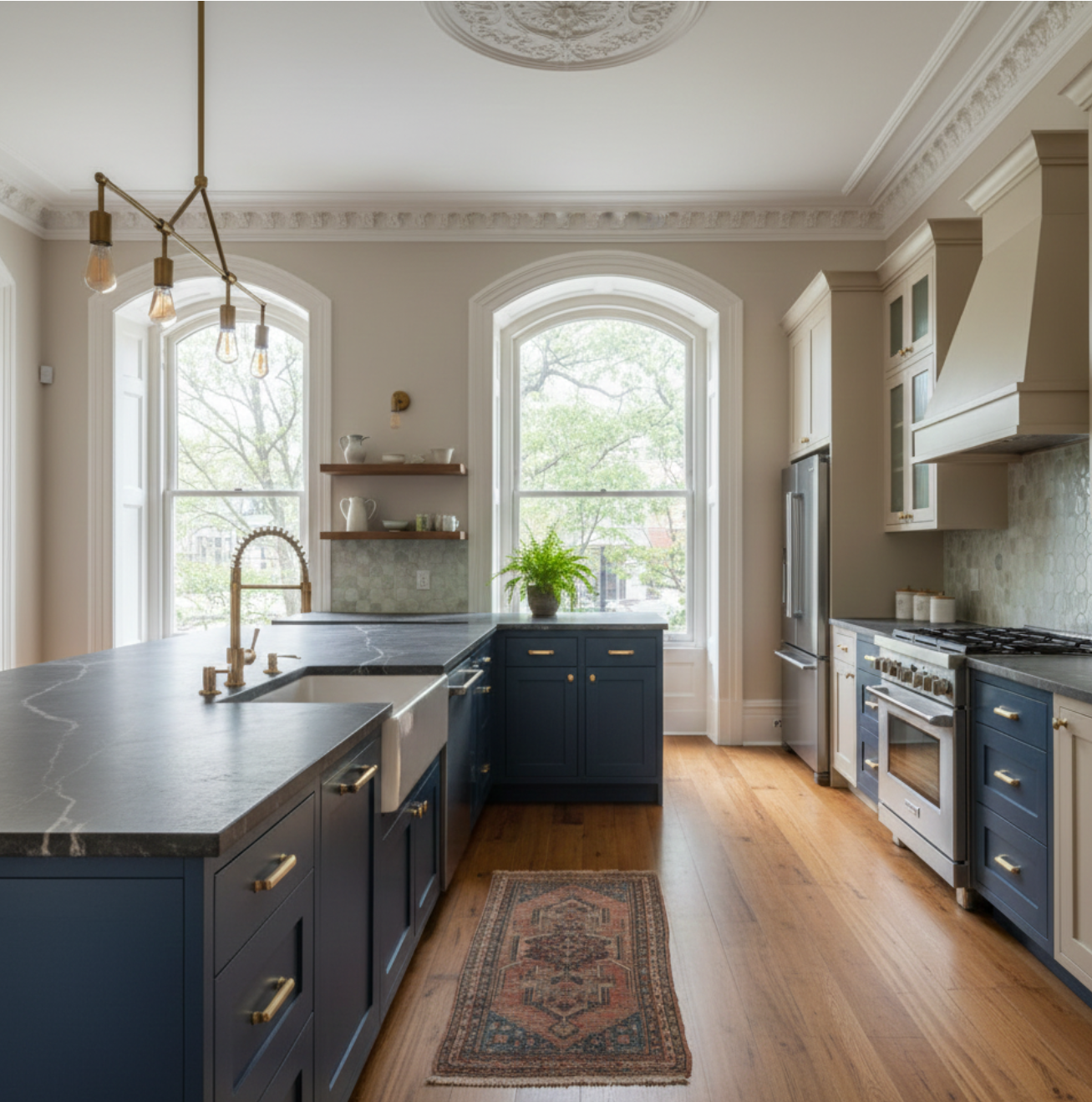Sealing granite countertops soon? Find out how to seal granite countertops and more with our ultimate guide and tips.

When you upgrade to granite countertops, you’ll want to preserve and protect them forever. Luckily, sealing granite countertops is one way to increase the longevity of their beauty. But if you’re unsure how to seal granite countertops, you could potentially cause damage to your room’s focal point.
So, if you will be sealing granite countertops soon, this guide is for you. In this blog, we’ll cover how to seal granite countertops step by step and the benefits of doing so. Keep reading to learn all about granite countertop sealing and where to source premium granite, too.
A regular sealing routine will help your granite countertops stay looking and working their best for longer. Regular sealing is typically recommended annually or every few years, depending on usage. Here's a step-by-step guide to sealing granite countertops:
With this step-by-step process, you’ll effectively seal your granite countertops, and preserve their beauty and durability. Of course, be sure to keep up with your sealing routine to maintain the protective barrier. Most sealants will recommend a reapplication schedule or at least do so annually.
If you think regularly sealing your granite countertops isn’t worth it, think again. Sealing granite countertops offers several significant benefits that enhance the appearance and functionality of your kitchen or bathroom surfaces.
First and foremost, it’s essential to understand that granite is a naturally porous stone. That means it can absorb liquids more than others. This can lead to staining or even worse, the growth and harboring of bacteria.
By sealing granite countertops, you create a protective barrier that prevents liquids like water, oil, and wine from penetrating the stone. The barrier helps maintain the countertop's pristine appearance by reducing the risk of unsightly stains and promoting a more hygienic environment by preventing the growth of bacteria and mold within the stone's pores.
Another reason to seal your granite countertops? It’ll make maintenance easier! Sealed countertops are much easier to clean, as the sealant prevents dirt and spills from seeping into the stone. A simple wipe with a mild cleaner or soapy water is often sufficient to keep the surface clean and shiny.
Furthermore, sealing granite countertops can enhance the stone's natural color and pattern. This helps make the intricate designs you specifically chose stay more vibrant and eye-catching for longer. The sealant can also give the granite a slight sheen, enhancing its visual appeal and making it a stunning focal point in any kitchen or bathroom.
More importantly, sealing and maintaining your granite countertops can improve your home's long-term durability and value. Properly maintained granite surfaces are more resistant to chips, cracks, and other damage, ensuring that your investment remains in excellent condition for years to come.
This durability can be particularly appealing to potential buyers if you ever decide to sell your home, as well-maintained granite countertops are often seen as a desirable feature in the real estate market. Overall, sealing granite countertops is a simple yet highly effective way to preserve and enhance your stone surfaces' beauty, functionality, and value.
With that in mind, here are more tips for maintaining granite countertops in addition to sealing them regularly.
Last but not least, wondering what type of cleaners are the best for maintaining countertop aesthetics post-sealing? The best cleaners for granite are pH-neutral, non-abrasive, and free from harsh chemicals that could damage the stone or degrade the sealant.
Many homeowners stick to the mild dish soap and warm water mix mentioned earlier. This is effective for removing grease, dirt and spills without causing damage to the surface. There’s also a plethora of commercial cleaners specifically designed for granite, that are ideal for more thorough cleanings, too. These products often contain polishers and conditioners that will enhance the stone’s natural finish while protecting it from future stains.
As we’ve mentioned, avoiding using acidic or abrasive cleaners on granite is crucial. This includes:
These cleaners and liquids can etch the surface and strip away the protective sealant. On the same note, it’s also wise to avoid scouring pads or brushes that can scratch the stone. Only soft clothes and sponges should be used on granite countertop surfaces.
If you need to disinfect your surfaces, there is a way to do so. Mix isopropyl alcohol with water, and then simply wipe it off with a clean cloth to prevent any leftover residue. By using the right types of cleaners and maintaining a regular cleaning routine, homeowners can keep their granite countertops looking beautiful and in excellent condition.
With this guide on how to seal granite countertops, you’ve learned the process step-by-step and the benefits of doing so. The next step? Finding the perfect piece of natural stone or granite to protect and preserve. Look no further than AP Marble and our 20 years of experience in the natural stone and granite industry.
At AP Marble, we specialize in finding the ideal focal point for any room for Michigan residents. Our warehouse is home to over 40,000 square feet of stone, with the ideal slab ready and waiting for you to select it.
You can view the products virtually or plan a trip to see the selection in person. Be sure to follow AP Marble on Instagram or Facebook to stay in tune with all the latest and get even more tips and resources from our blog.

Explore upcoming 2026 trends in natural stone countertops for Metro Detroit kitchens, including colors, textures and durable stone options.

Discover the top stone choices for remodeling historic Detroit homes. Learn how to match natural stone with original architecture and period details.